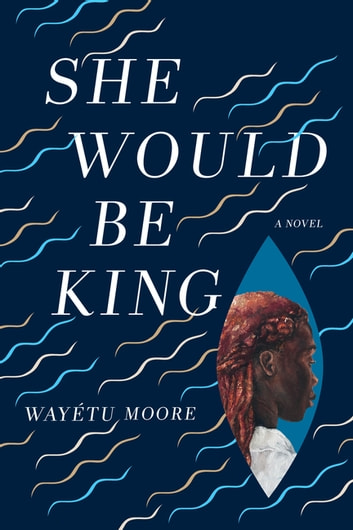She would be King by Wayétu Moore
This magical realist book follows three characters who have magical powers. Gbessa, is a red- haired girl who has been named a witch because of the unfortunate timing of her birth in a village called Lia in what we can assume is present day Liberia. The unusual color of her hair is used as evidence that she is indeed a witch. Her super-power is that she does not die; not when she should have starved to death nor when she is choked in the hands of an unforgiving enemy. June Dey, another character with magical powers is born into slavery in Virginia under precarious circumstances. He has a more common super power, that of incredible physical strength. In fact his body is so strong it cannot be wounded even by a bullet which, as you can imagine, allows him an incomparable advantage over his enslavers. Lastly there is Norman Aragon, a son of a Jamaican woman and a British colonizer who grew up in Jamaica. Norman inherits his super power from his mothers side and he is able to disappear into thin air.
Although for the most part of the book the three, Gbessa, June Dey and Norman, find themselves in different parts of the world their destinies are linked in their battles against colonizers and enslavers. This linkage becomes tangible when both Norman Aragon and June Dey find themselves in Gbessa’s country fighting against colonizers and enslavers and using their superpowers to turn the tide.
In a prolific scene June Dey and Norman Aragon free a group of villagers from the hands of enslavers. Although this scene does not contribute much to the overall narrative, it is powerful to me because it allowed for the Africans to be the victors. The scene is powerful as it cuts down to the core of the myth about the supposed superiority of Europeans over Africans. It shows that the greatest advantage Europeans yielded was a destructive weapon; not a moral, religious, racial nor any other superiority many people have been made to believe they had.
Although this victory was achieved using magic which may seem unrealistic to some, there were an endless number of battles that were fought between Africans and enslavers across the continent where the African side came out victorious. The most famous example being the Battle of Adwa of 1896. However, as African readers we are often not given the chance to indulge in these stories, not even in fiction, for fear of making the realities of colonialism, slavery and imperialism seem minimal or avoidable. Moore has the courage to challenge this narrative and she does an impeccable job illustrating the nuances of history.
Moore offers us an alternative narrative, that far from minimizing the complex history of Africans, is an empowering story that goes beyond demeaning and disheartening myths which continue to be reproduced.




